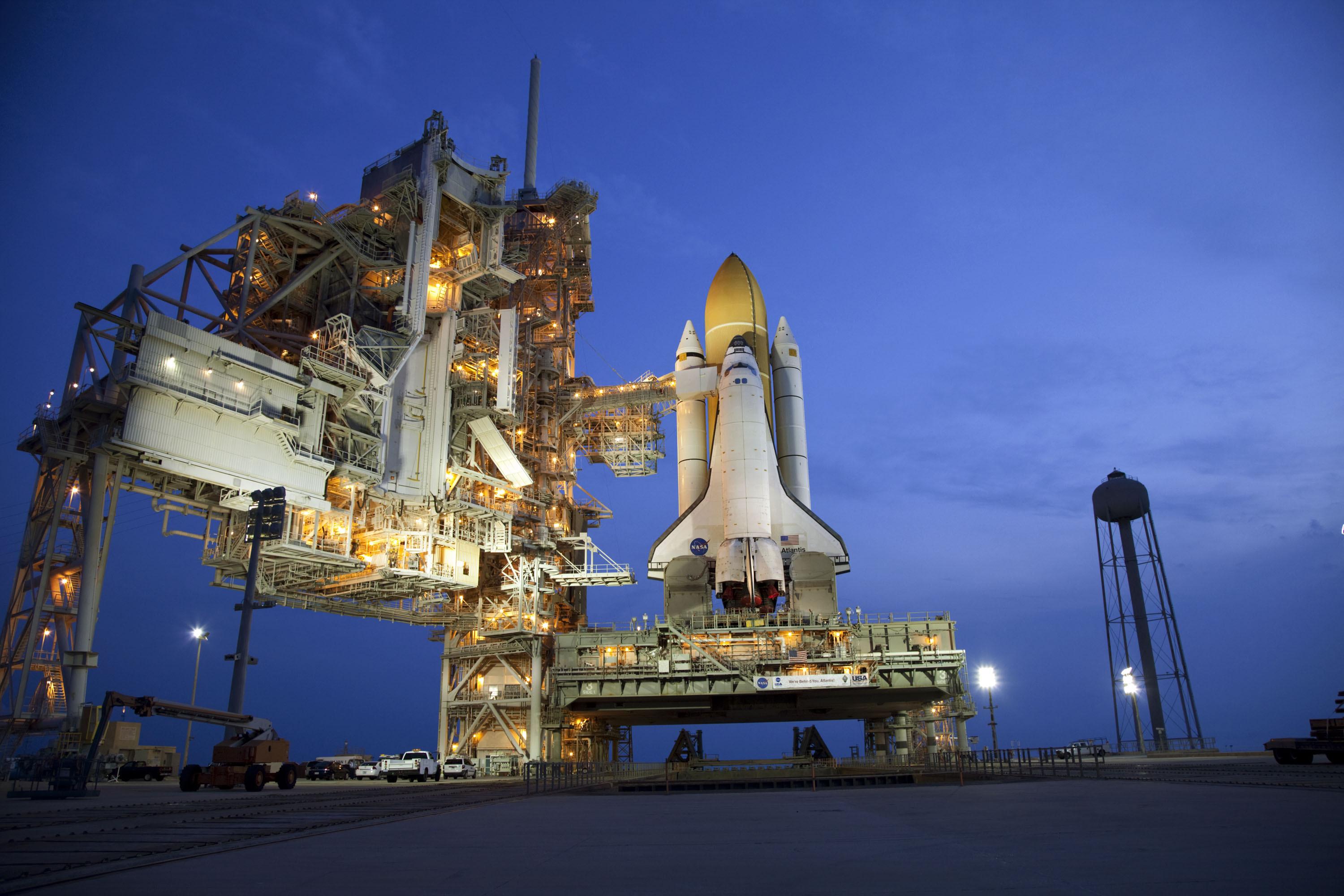NASA Delivers Cargo to Launch Pad for Last-Ever Shuttle Flight

Breaking space news, the latest updates on rocket launches, skywatching events and more!
You are now subscribed
Your newsletter sign-up was successful
Want to add more newsletters?

Delivered daily
Daily Newsletter
Breaking space news, the latest updates on rocket launches, skywatching events and more!

Once a month
Watch This Space
Sign up to our monthly entertainment newsletter to keep up with all our coverage of the latest sci-fi and space movies, tv shows, games and books.

Once a week
Night Sky This Week
Discover this week's must-see night sky events, moon phases, and stunning astrophotos. Sign up for our skywatching newsletter and explore the universe with us!

Twice a month
Strange New Words
Space.com's Sci-Fi Reader's Club. Read a sci-fi short story every month and join a virtual community of fellow science fiction fans!
CAPE CANAVERAL, Fla. – NASA rolled out its final space shuttle mission's cargo pod to the launch pad Thursday (June 16) here at Kennedy Space Center, in preparation for installing it on board space shuttle Atlantis.
Packed with more than 8,000 pounds of supplies and equipment for the International Space Station, the "Raffaello" logistics module and a separate experiments platform were packed inside a shuttle cargo bay-sized canister for the trip out to the pad.
The 60-foot tall canister took about two-and-a-half hours to make the journey, arriving at the base of the pad's rotating service structure at about 11:30 p.m. EDT Thursday (0330 GMT Friday). It was then hoisted up into the pad's payload handling room where its contents will be prepared for installation into the shuttle's cargo bay on Monday.
Atlantis is targeted to lift off on STS-135, NASA's 135th and final space shuttle mission, on July 8. During the 12-day flight, commander Chris Ferguson and his three crewmates, Doug Hurley, Sandra Magnus and Rex Walheim, will deliver Raffaello to the space station, completing the shuttle program's last cargo delivery to the orbiting laboratory.
After transferring the cargo pod's contents onto the station, the STS-135 crew will then repack Raffaello with more than 5,000 pounds of refuse, supplies and experiment results for the trip back to Earth. [Gallery: Shuttle Atlantis' Last Launch Pad Trek]
The payload's delivery to the pad followed a successful tanking test performed earlier this week during which Atlantis' external fuel tank was checked for structural defects. The test, which loaded the tank with approximately 535,000 gallons of super-cold propellants exposed the tank to the same extreme low-temperatures it will experience on launch day.
Initial inspections revealed no apparent cracks to the tank's exterior insulating foam. On Saturday, technicians will X-ray the tank to verify its underlying support beams, or stringers, are also crack-free.
Breaking space news, the latest updates on rocket launches, skywatching events and more!
During the test, engineers saw evidence of a possible liquid-hydrogen leak from one of Atlantis' three main engines. The source of the leak, a main fuel valve, will be replaced, but the work is not expected to impact the shuttle's planned July 8 launch date.
On Monday (June 20), the STS-135 astronauts will arrive at the Kennedy Space Center to begin several days of training, culminating Thursday (June 23) in a full-up dress rehearsal for their launch countdown. The four crewmembers will don their orange pressure suits and board Atlantis to practice the procedures leading up to their liftoff.
Robert Pearlman is a contributing writer for SPACE.com and the editor of collectSPACE.com. You can follow him on Twitter @robertpearlman and @collectSPACE, or on Facebook. Follow SPACE.com for the latest in space science and exploration news on Twitter @Spacedotcom and on Facebook.

Robert Pearlman is a space historian, journalist and the founder and editor of collectSPACE.com, a daily news publication and community devoted to space history with a particular focus on how and where space exploration intersects with pop culture. Pearlman is also a contributing writer for Space.com and co-author of "Space Stations: The Art, Science, and Reality of Working in Space” published by Smithsonian Books in 2018.
In 2009, he was inducted into the U.S. Space Camp Hall of Fame in Huntsville, Alabama. In 2021, he was honored by the American Astronautical Society with the Ordway Award for Sustained Excellence in Spaceflight History. In 2023, the National Space Club Florida Committee recognized Pearlman with the Kolcum News and Communications Award for excellence in telling the space story along the Space Coast and throughout the world.
